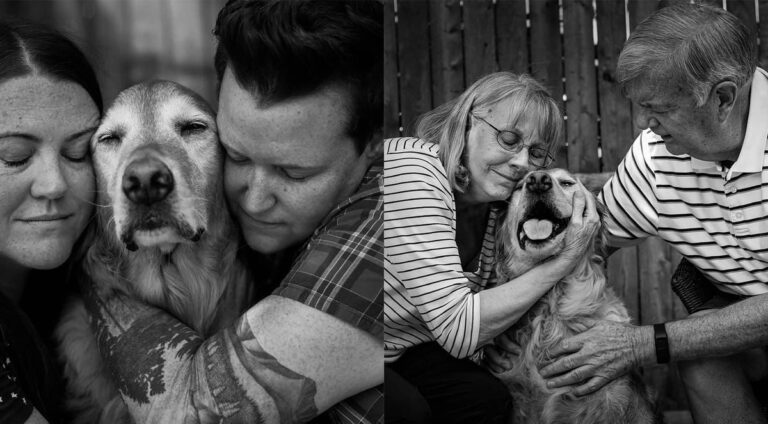Photographer captures PRECIOUS moments of owners about to lose their pets
Losing a pet can be one of the most devastating experiences to recover from. Words cannot begin to describe the sudden loss of warmth and joy from everyday life as owners reflect back on the good times shared with their furry friends. This is where physical memories—of the final moments with your ageing pets—can turn into a helpful resource for coping with grief.
And this is exactly what end-of-life pet photographer Lauren Smith-Kennedy aims to address, by offering free photoshoots for owners saying their final goodbyes to their four-legged companions.
Based in South Portland, Maine, Smith-Kennedy was initially inspired to offer the service after experiencing the sudden loss of her cat, Tilly. “The loss of a pet is truly one of the most heart-breaking, earth-shattering pains out there that so many of us can relate to,” she said in an interview with My Modern Met. “While there is no cure-all for grief, I feel honoured to be trusted to capture such meaningful, vulnerable moments while memorialising the unbreakable bond between animals and their families.”
With sessions lasting 45 minutes to one hour, the end-of-life photographer gives owners the complete autonomy of the photoshoot. “They are what you want them to be,” Smith-Kennedy wrote on her website. “This means you could have your whole family involved or just solo photos of your pet.”
For further personalisation, the photographer gives certain prompts for engagement rather than suggestions for poses during the photoshoot. Owners can additionally choose between black and white or colour portraits.
After sharing her work across social media, Smith-Kennedy witnessed an influx of inquiries from several families across the country. Since her photography services are free of charge, however, she is only able to travel within a 20-mile radius of Portland. But her commitment to the cause has led her to create the Tilly Project: a network that aims to connect pet owners with end-of-life pet photographers around the world—seeking to provide accessible, educational and supportive resources for photography, anticipatory grief and pet loss.
From gummy smiles and wet snouts to nostalgic eyes and powerful embraces, Smith-Kennedy’s photographs reflect on why the grief of pet owners deserve acknowledgement. They also showcase the different dynamics of how people cope with the loss of a beloved family member as they cross the rainbow bridge into impressionable immortality.
“I offer my sessions for free as a way to make this resource as accessible as possible,” she told My Modern Met. “I strongly believe that everyone deserves to have beautiful photos of their pets because though some may be small in size, they really do create the biggest impacts on our lives while teaching us the truest form of loyalty and love in the process.”





